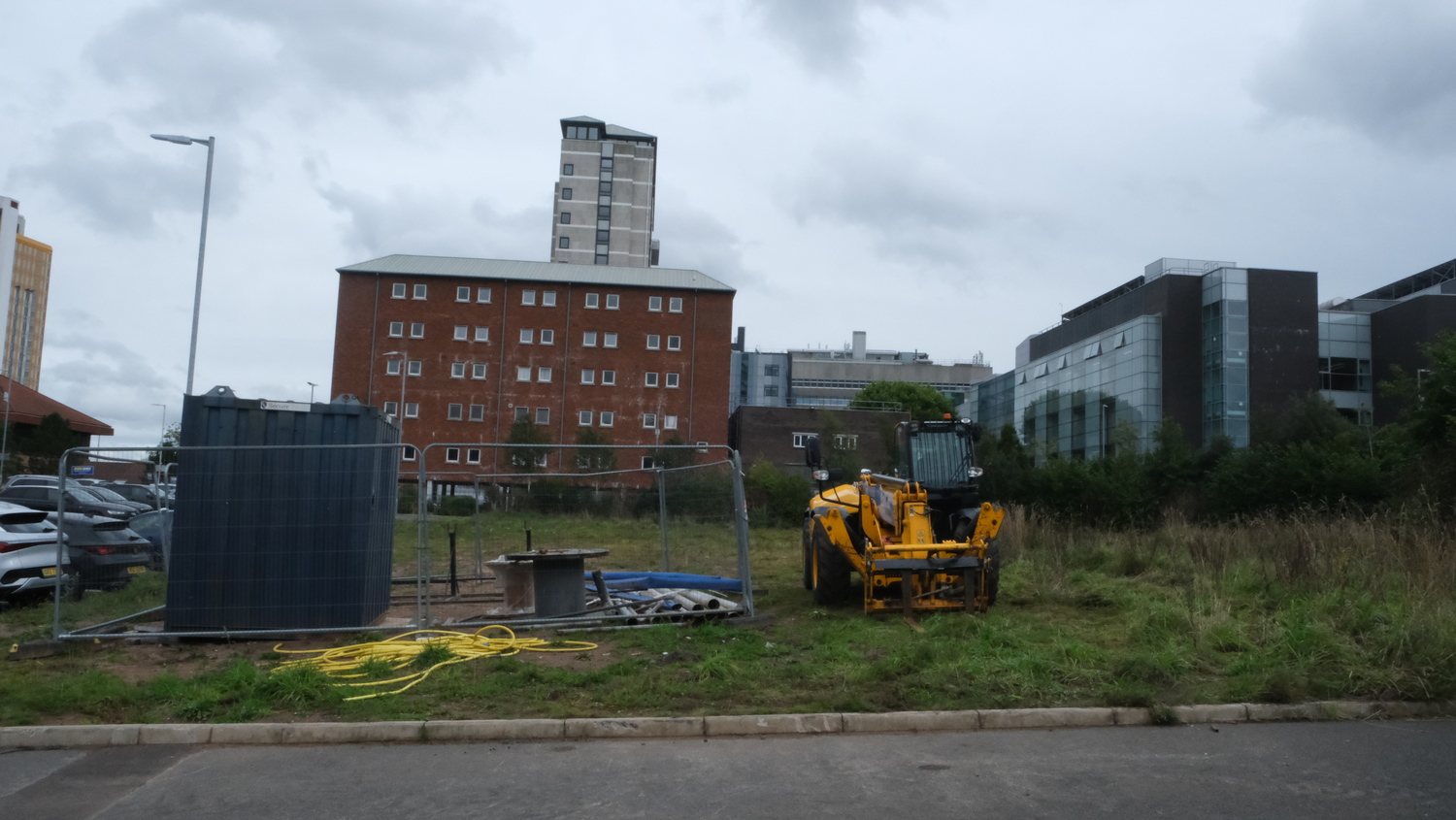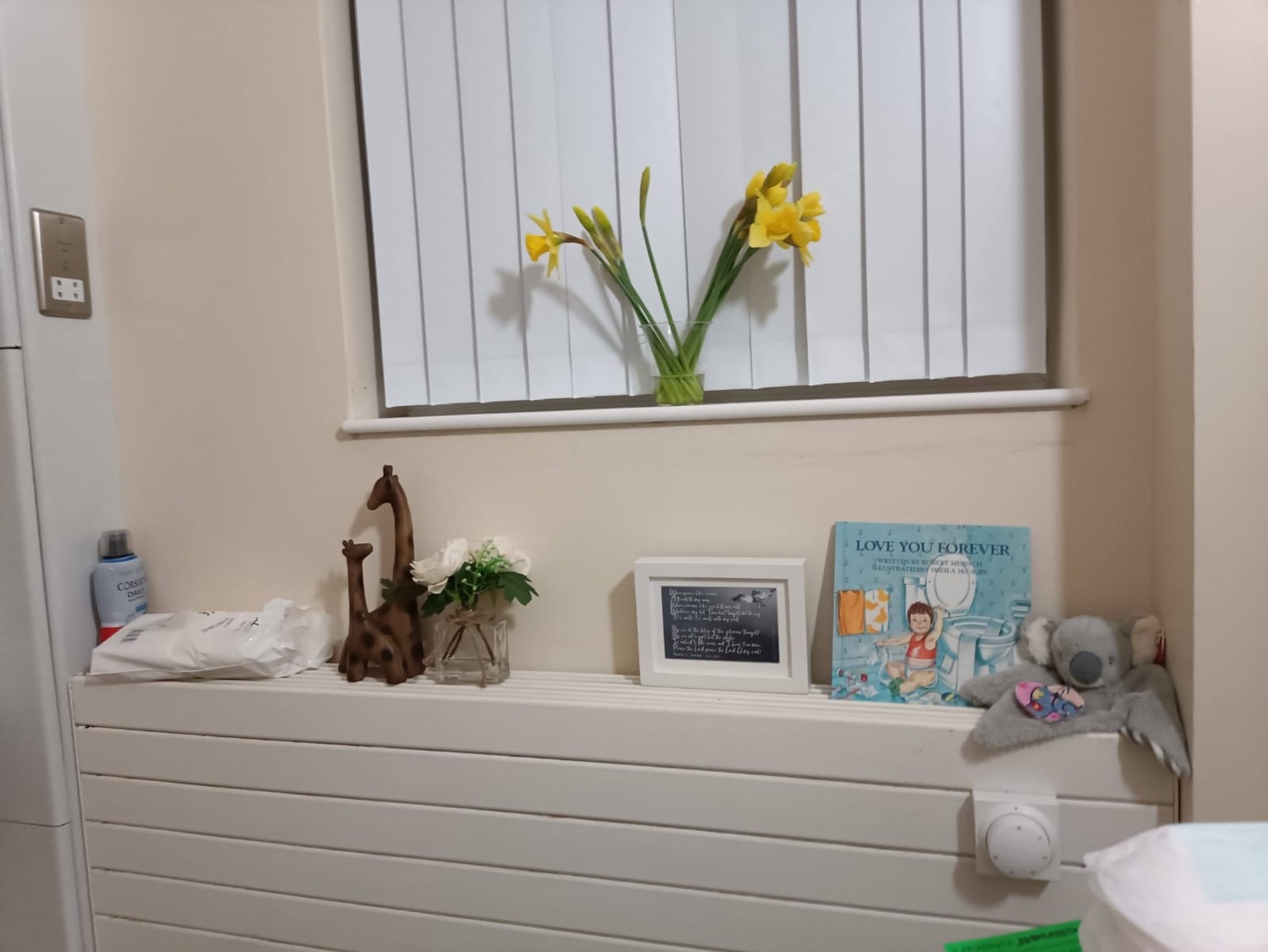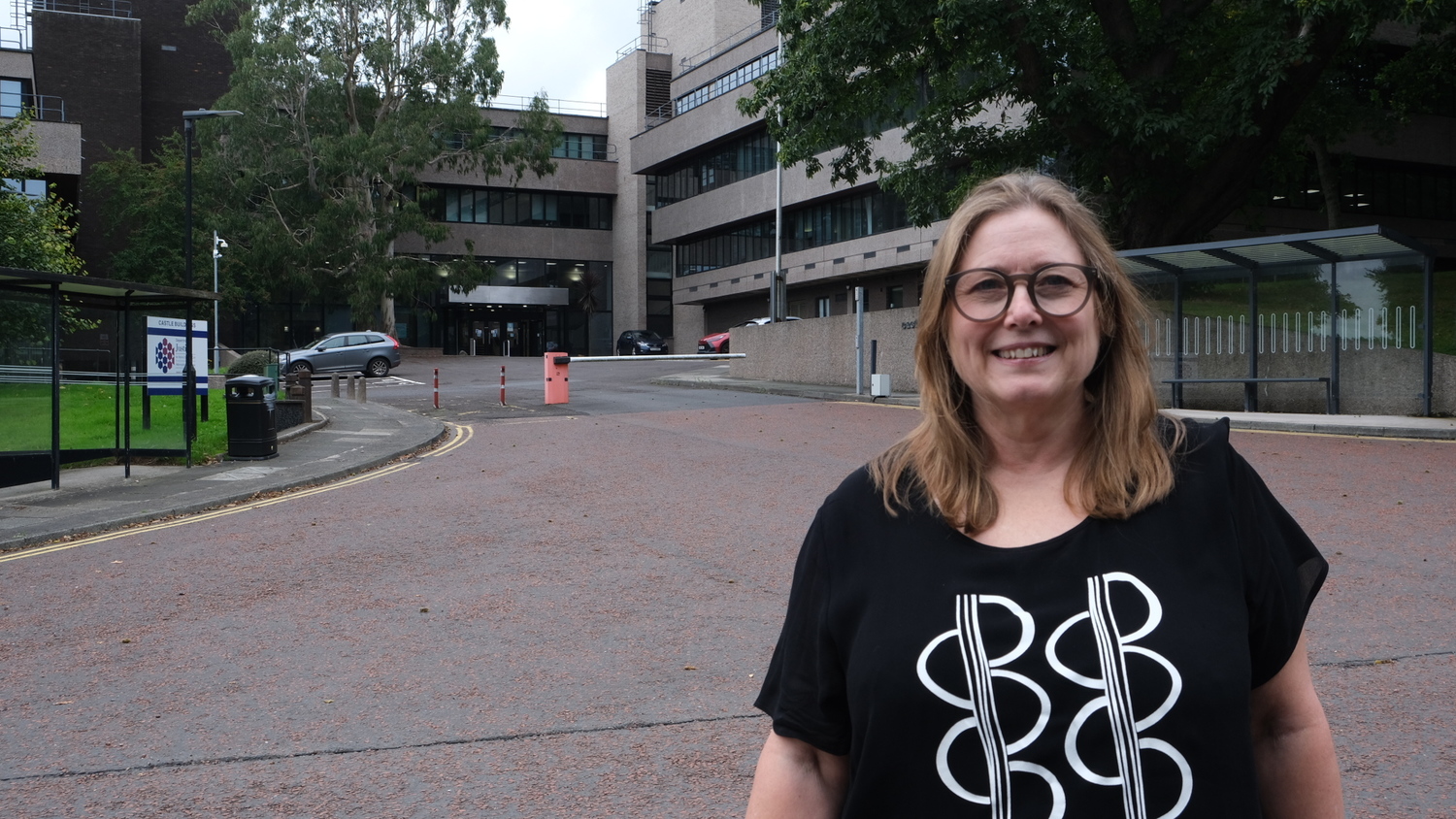When Stephanie Hanna was admitted to a psychiatric ward six months after giving birth, she did not know how long she would be separated from her baby.
“That really scared me. The idea of not being able to see her was the worst part,” said Stephanie, a 33-year-old GP from Lisburn, Co Antrim.
Although her husband brought their daughter to visit, the ward at Lagan Valley Hospital in Lisburn was far from child-friendly, she recalled.
“She’d get frustrated after 10 minutes and had to leave, and I’d be in floods of tears,” Stephanie said.
Northern Ireland is the only part of the UK without a mother-and-baby unit (MBU) – an inpatient facility where mothers with severe postnatal mental health conditions can receive treatment while staying with their newborns.
Instead, women like Stephanie are admitted to general psychiatric wards that lack perinatal-trained staff and are not equipped for their needs, forcing separation from their babies.
Experts warn this separation can cause lasting trauma, disrupt bonding, and in some cases lead to tragedy.
“A general adult mental health ward is not an appropriate environment for a new mother,” said Dr Julie Anderson, chair of the Royal College of Psychiatrists in Northern Ireland.
“Some wards are open mixed gender wards, without private rooms. There will be a range of ages being cared for from young people to older adults, with a wide range of mental illness.”
The Detail spoke to several women in Northern Ireland who were separated from their babies and are still dealing with the aftermath.
Just two days after giving birth, Lisa* (38) was transferred from the postnatal ward to the general psychiatric ward in Causeway Hospital, where she was diagnosed with adjustment panic and depressive disorder.
When you’re alone in a ward, you miss a "lot of firsts" – the first bath, the first time your baby smiles, Lisa, from Coleraine, told The Detail.
“The struggle to adjust to being a parent only worsened without my baby,” she said.
“Physically, being admitted so soon after birth was tough,” Lisa recalled. “I didn’t have basic things – breast pads, sanitary pads, a bath, or proper storage for pumped milk. I had stitches that got infected, and I had to swab them myself because there were no midwives available.”
“You can’t learn to feed if your child isn’t there,” Lisa said. “Milk stimulation is linked to your baby – their scent, their crying, their touch.”
After seven weeks in hospital, returning home was overwhelming.
“I felt like I was stepping into a stranger’s world,” she told The Detail. “Simple tasks like bathing her terrified me – you need to build confidence, which you can’t do if your child isn’t present.”
Both the South Eastern Health and Social Care Trust and the Northern Health and Social Care Trust acknowledged the need for a mother-and-baby unit.
The South Eastern Trust said its mental health ward at Lagan Valley Hospital “is unable to facilitate a mother and baby admission together,” but provides a family visiting area and specialist perinatal service to help mothers during their hospital stay.
The Northern Trust, which runs Causeway Hospital, said that while work on a unit is ongoing, its staff “continue to provide person-centred, safe and compassionate care” and hold “therapeutic visiting” sessions to help mothers maintain contact with their babies.
Stalled
Campaigners have advocated for a unit for decades. In 2008, the Northern Ireland Assembly Health Committee, then chaired by Michelle O’Neill, visited a Scottish mother-and-baby unit and urged one for Northern Ireland.
Fifteen years later, in 2023, the Department of Health announced a unit would be allocated within Belfast City Hospital. But progress has stalled.
Last week, the Health Minister Mike Nesbitt, who said the unit was “long, long overdue”, announced the Belfast Trust business case had been completed.
“To establish a mother-and-baby unit, we will require significant capital and revenue investment, because it is not just about infrastructure; it is about staffing, training and ongoing service delivery,” he said.
Yet campaigners, such as Liz Morrison from Action on Postpartum Psychosis, are asking for more transparency.
The Minister didn't commit to publishing the business case, Ms Morrison, who has been campaigning for an MBU for nearly 20 years, said. “Aside from it being a six-bed unit, we don't know anything about it.”
The Department of Health said the business case will not be published, as it contains financial information that could prejudice a future tender process and the proposal is still under consideration. Further details about the proposed unit will be released once the Outline Business Case has been approved.
It added that the draft Budget outcome is not expected until later this year, which will inform the Department’s capital investment plan and set out projects to be taken forward over the next 10 years.

The site of a future mother-and-baby unit at Belfast City Hospital. Photo by Carlotta Dotto, The Detail
Vulnerable
The perinatal period is one of the most vulnerable in a woman’s life: Around one in four mothers in the UK experiences a mental health condition during pregnancy or in the months after giving birth.
Of these, a smaller but significant number require hospitalisation for severe conditions such as postpartum psychosis – a medical emergency that can appear within days of delivery.
There are 22 mother and baby units in Britain – one in Wales, two in Scotland and 19 in England.
Earlier this month, a motion from Sinn Féin MLA Órlaithí Flynn called for the urgent establishment of the unit to ensure that “no mother ever again has to recover from birth in a psychiatric ward without her baby.”
“We heard of 2030 as a possible opening date, and that is simply indefensible,” she said.
The Detail’s report is part of a broader cross-border investigation which compared perinatal health care systems in Northern Ireland, Italy, Greece, and Hungary.
Across countries, access to specialist care varied widely, leaving pregnant people’s health dependent on where they lived.
In a survey of more than 700 mothers across four countries, over half reported feeling anxious or overwhelmed after giving birth, 47% said they felt lonely and isolated from others, and two in five said they no longer felt like themselves or had lost their sense of identity.
In the UK, suicide is still the leading cause of maternal death, according to a 2025 report. But with timely and appropriate care, such deaths are preventable.
In 2022, an inquest into the death of Orlaith Quinn, who took her own life after developing postpartum psychosis, found her death “foreseeable and preventable”.
The coroner's report highlighted deficiencies in psychiatric assessment and care, recommending the establishment of a Mother and Baby Unit (MBU) in Northern Ireland to provide appropriate care for mothers experiencing perinatal mental health crises.
While Stephanie and Lisa’s experiences show the cost of lacking specialist care, the story of Ruth Hanna (41) offers a glimpse of what’s possible when support exists.
After struggling with post-partum psychosis – which led her to attempt suicide – Ruth, born in Dublin but raised in Belfast, was able to access treatment in a Scottish MBU.
There she stayed with her baby in a private room, with round-the-clock psychiatric and midwifery care. “There was a beautiful garden where we could play, a bathing and feeding area, and a playroom with toys,” she told The Detail.
Childcare nurses guided the mothers through daily routines and play activities. “They encouraged us to do everything ourselves – changing nappies, dressing, feeding, playtime, lunch, nap – while accompanying us when needed,” Ruth recalled.
“It was about learning to be mothers while also recovering from our illness.”
Reflecting on her experience, Ruth said, “I felt guilty thinking about those back home who didn’t have access to an MBU.”
“I feel lucky I didn’t have to go through that,” she added.
*Lisa a pseudonym
This article was developed with the support of Journalismfund Europe. Corina Petridi and Eszter Imre-Kandó contributed reporting

